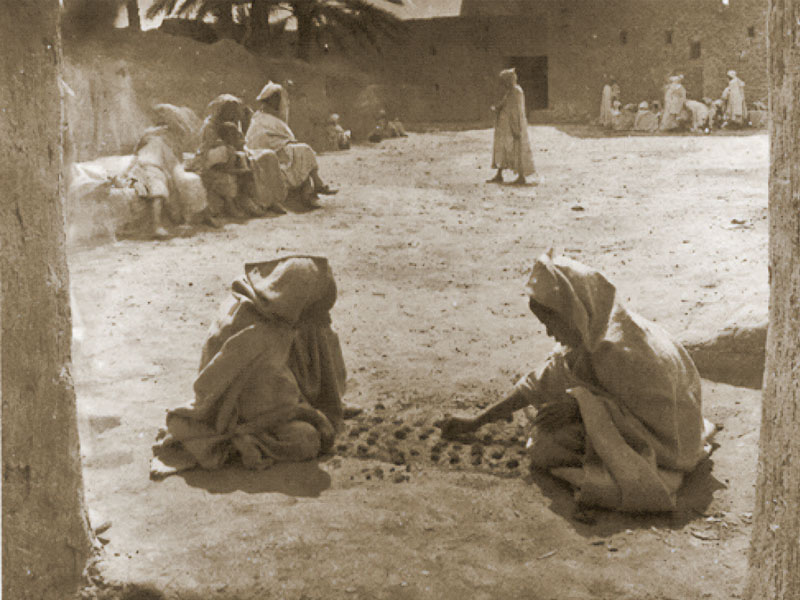Games in the Abbasid Era based on archaeological discoveries in the Islamic city of Ayla
Issue 34

By Fatima Abu Shqal
The researcher sheds light on the most important games discovered in the Islamic city of Aylah. These games, which are still played today, date back to the Abbasid Era.
Board games: Manqallah describes a variety of board games that involve moving stones; these games are played across the world. The oldest recorded mention of Manqallah was in the 10th century; Abu Al Faraj Al Isfahani mentioned it in “The Book of Songs”, Volume 5.
So far, there about 800 different names for traditional Manqallah games. Approximately 200 of these games are played in 99 countries around the world. Muslim and Arab merchants helped spread the games to other nations.
Duodecim Scripta, (Twelve Lines), is a board game for 2 players. Each player uses 15 stones of a particular colour, and arranges his stones on a specific line. Three dice are thrown, and then the player moves the stones based on the dice.
Aylah is one of the oldest Islamic cities outside the Arabian Peninsula. The city has four main gates, and each gate is surrounded by a tower. The gates are connected by two main streets. One of the most prominent is the Egypt’s Gate, (or North Egypt’s Gate). A house with unique architectural design is located near this gate. Under the supervision of Kristoffer Damgaard, the University of Copenhagen excavated the area after Dr. Donald Whitcomb discovered and excavated the site.




































































